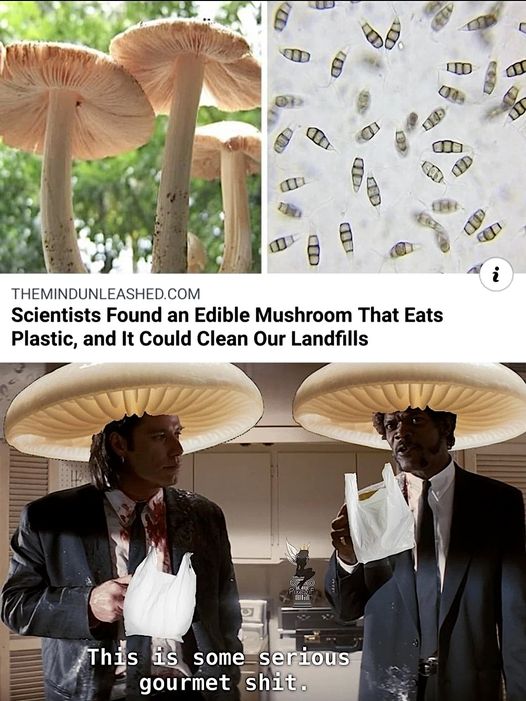this post was submitted on 06 Feb 2024
919 points (98.4% liked)
Science Memes
12165 readers
3372 users here now
Welcome to c/science_memes @ Mander.xyz!
A place for majestic STEMLORD peacocking, as well as memes about the realities of working in a lab.

Rules
- Don't throw mud. Behave like an intellectual and remember the human.
- Keep it rooted (on topic).
- No spam.
- Infographics welcome, get schooled.
This is a science community. We use the Dawkins definition of meme.
Research Committee
Other Mander Communities
Science and Research
Biology and Life Sciences
- [email protected]
- [email protected]
- [email protected]
- [email protected]
- [email protected]
- [email protected]
- [email protected]
- [email protected]
- [email protected]
- [email protected]
- [email protected]
- [email protected]
- [email protected]
- [email protected]
- [email protected]
- [email protected]
- [email protected]
- [email protected]
- [email protected]
- [email protected]
- [email protected]
- [email protected]
- [email protected]
- [email protected]
- !reptiles and [email protected]
Physical Sciences
- [email protected]
- [email protected]
- [email protected]
- [email protected]
- [email protected]
- [email protected]
- [email protected]
- [email protected]
- [email protected]
Humanities and Social Sciences
Practical and Applied Sciences
- !exercise-and [email protected]
- [email protected]
- !self [email protected]
- [email protected]
- [email protected]
- [email protected]
Memes
Miscellaneous
founded 2 years ago
MODERATORS
you are viewing a single comment's thread
view the rest of the comments
view the rest of the comments

It is not a matter of conversion. most plastics can be recycled or burnt cleanly. It is a matter of collection, sorting and operationg the recycling facilities at an economic rate. The last thing can be done easily. Just introducing a high enough tax on non recycled plastics would do the trick.
As always in capitalism plastic waste is not an issue that lacks technological means. What lacks is the economic and political will to deal with it.
Most plastics cannot be recycled, and produce disproportionately high levels of greenhouse gasses and toxic fumes when burned. Burying plastic in an encased landfill is the best way to dispose of it, otherwise it will end up in the water cycle. If we can feed it to mushrooms or bacteria, the world will get cleaner over time.
Landfills regularly leak. As the plastics are not decomposing by themselves, you end up with infrastructure that needs to be maintained forever. Otherwise you just move the problem into the future. And for plastics that do decompose somewhat in a landfill it is less controlled than in a dedicated recycling or disposal facility.
At the same time burning plastics at a high enough temperature and washing the exhaust gas, can effectively remove them from existence. The most common plastics like PET, PE, PP, and many more can be burnt cleanly, e.g. the only product will be CO2. Plastics like PVC need more dedicated facilities, but it is perfectly possible.
Landfills are always the worst option of waste treatment, except for just tossing stuff into the environment directly. We shouldn't hope for some mushroom to eventually deal with the problem. The first step is to reduce the production of plastic wastes. The second is to deal with collection and recycling/disposal properly. Neither steps are taken properly in the current capitalist economy with externalized costs.
Landfills do leak, and that's a problem. They aren't a good solution, it's just the best one we have at the moment. That's why the mushrooms are a promising step.
Washing the gas and smoke from burning plastics is a myth sold by the plastic industry. You cannot eliminate polys and heavy metals from the exhaust, and few waste burning facilities bother to even pretend to try. The process is expensive, requires complex facilities, and you're still left with the waste water full of caustic and toxic effluent.
I agree that reducing, or eliminating, plastic use is the best path forward. I disagree that recycling plastic is a technology that will save us from ourselves, though. I see it as a form of greenwashing the plastic industry, when only 35% of plastic going to recycling facilities actually gets recycled. Don't get me wrong, something is better than nothing, but how many people don't think twice about their plastic use because all of it goes in the special blue bin? Recycling led to an increase in the amount of plastic produced, which far outweighs the benefit of having recycled some of it.
I'm with you that creating an expensive, permanent facility to store waste seems like a bad idea. But pretending that we can avoid it without reducing our consumption is why we're never going to stop.
I have to disagree heavily there. Thermic plastic disposal is standard in many developed countries and cleaning of combustion exhaust gases is an established and reliable technology.
It just costs money and requires regulatory oversight, that some countries like to cut on.
You gave heavy metals as an example. No mushroom can clean away heavy metals. They can only break down molecular components. Heavy metals are one of the compounds why thermal disposal is necessary. You can wash the heavy metals out of the exhaust gas, concentrate them and then store them in more dedicated facilities, e.g. old salt mines.